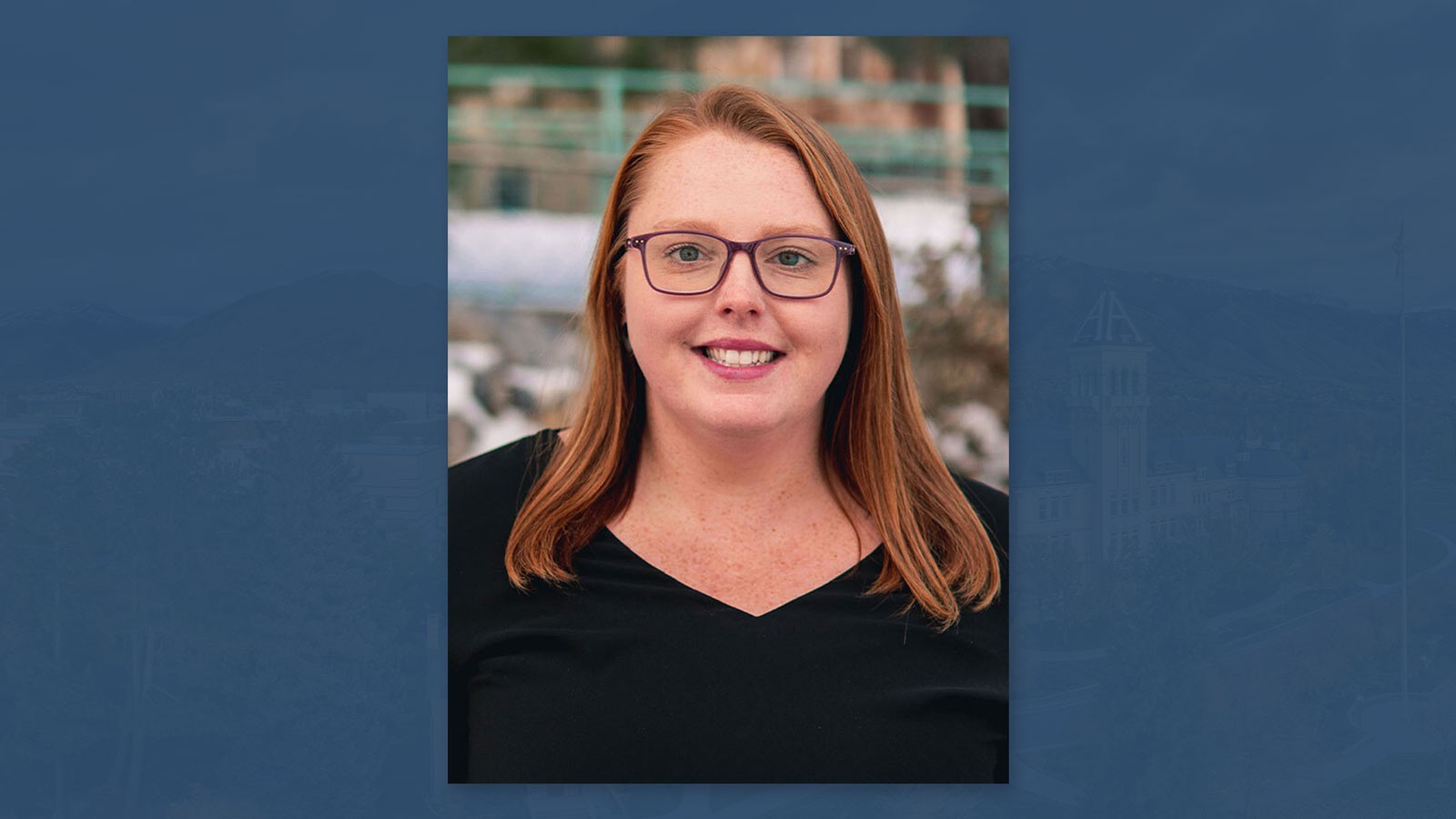USU Researcher Considers Family Stigma Surrounding Opioid Use
By Andrea DeHaan |
Sydney O'Shay
LOGAN — Utah State University Assistant Professor of Communication Studies Sydney O’Shay is studying the way communication impacts substance addiction and, more specifically, how family members are affected by the social stigmas associated with substance abuse.
In recent months, O’Shay has seen her research published in a top-ranked journal in her field and received an award to develop a scale to measure how individuals can use communication strategies to navigate stigma.
“If family members feel that they are experiencing stigma because their loved one has an opioid use issue … and they feel like it's justified for them to be judged, then they're more likely to isolate themselves, withdraw socially from loved ones, co-workers, and from any form of social engagement,” O’Shay said.
“But if they are in a place where they are challenging that idea of stigma and they're saying, ‘I recognize that this stigma exists, but it's unjust,’” O’Shay said, “they might be in a place where they're challenging that stigma as an advocate … and saying, ‘Hey, this is happening, but it shouldn't.’”
O’Shay is a recipient of the Central States Communication Association 2023 Federation Prize for a project that aims to measure how people respond to the stigma associated with specific health conditions. The association is one of the largest and most prominent organizations for academic professionals in the field of communication studies.
As academics studying interpersonal and health communication, O’Shay and her Federation Prize collaborators, Kaitlin E. Phillips of Baylor University and Jenn Anderson of South Dakota State University, are working to help measure how people manage stigma and link it to outcomes such as psychological distress.
While the Stigma Management Scale Development project will initially focus on surveying internalized attitudes around mental illness, the measurement scale will then be applied to a broader group experiencing diverse kinds of stigma. Additionally, two of O’Shay’s students were recently awarded funding from the College of Humanities and Social Sciences and the Office of Research to work on the project as well.
This research overlaps with O’Shay’s efforts to show that communication strategies can be effective in helping family members navigate the internal and external stigmas they experience when a relative is using opioids for non-medical reasons — work she considers personal.
“I come from a family that has really been greatly impacted by substance use,” O’Shay said. “I've lost my father due to issues related to substance use, but most recently over the past nine years, I've lost two siblings to opioid overdose. And so that really drives this work.”
She is among a group of interdisciplinary researchers to publish their findings on affected family members in the Journal of Family Communication, a highly-ranked publication in O’Shay’s field. Funded by the Substance Abuse and Mental Health Services Administration and a grant from the State of Michigan, the study examined how families cope with and negotiate the stigma that comes with having a loved one with substance use disorders.
While this latest publication focuses on opioid use in Michigan, where O’Shay earned a Ph.D. from Wayne State University in 2021, she says that Utah is another state severely impacted by the opioid epidemic.
“I'm really interested in working with the community that I'm living in,” O’Shay said. “My work is very applied in nature, as much of health communication work is, but my goal with every project that I take on, every manuscript that I publish, is to include a section on how this work can be translated to help the populations impacted most by substance use issues.”
Like Michigan, Utah is among the states to have received a payout from the opioid settlement, and the state must now decide how to spend that money, which is intended to ameliorate the impact of opioid use on affected Utahns.
“We're working on developing … an understanding of how the different ways families cope with stigma can have positive or negative consequences for their mental health and quality of life overall,” said O’Shay, who has begun working with agencies in Utah.
“And if we can better understand that, we can develop a set of best practices for social workers and other practitioners to help them guide and counsel their clients to more productively cope with this stigma.”
A cornerstone of Utah State University, the College of Humanities and Social Sciences brings together faculty members engaged in original research and creative activities to teach and mentor students who aspire to be leaders in their professions and communities. Degrees in humanities and social sciences cultivate highly-adaptable professional skills in students through teaching effective communication, research, data analysis, and creative problem-solving.
WRITER
Andrea DeHaan
Communications Editor
College of Humanities and Social Sciences
435-797-2985
andrea.dehaan@usu.edu
CONTACT
Sydney O'Shay
College of Humanities and Social Sciences
Assistant Professor of Communication Studies
sydney.oshay@usu.edu
TOPICS
Research 879stories Society 505stories Family 195stories Communication 50storiesComments and questions regarding this article may be directed to the contact person listed on this page.







